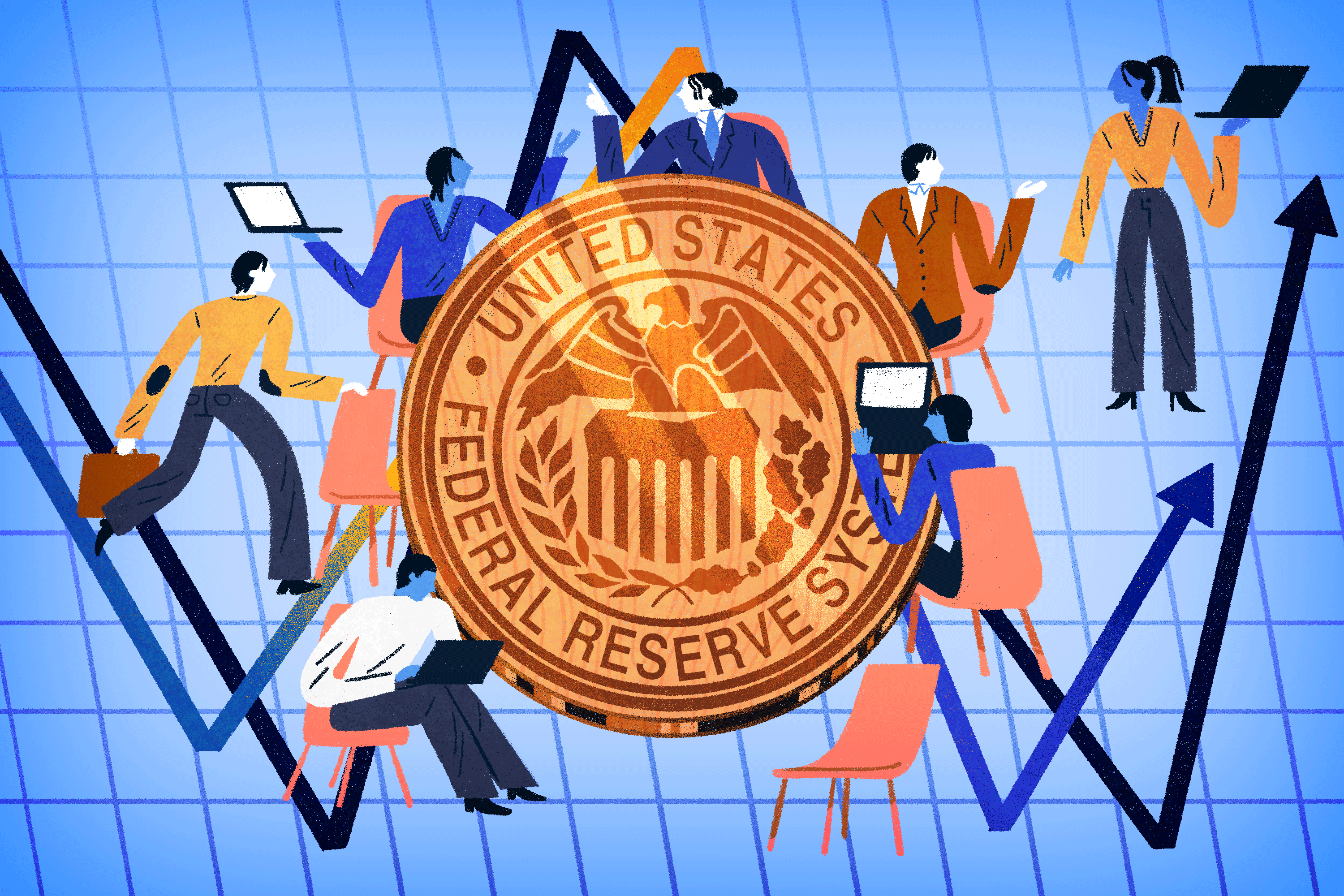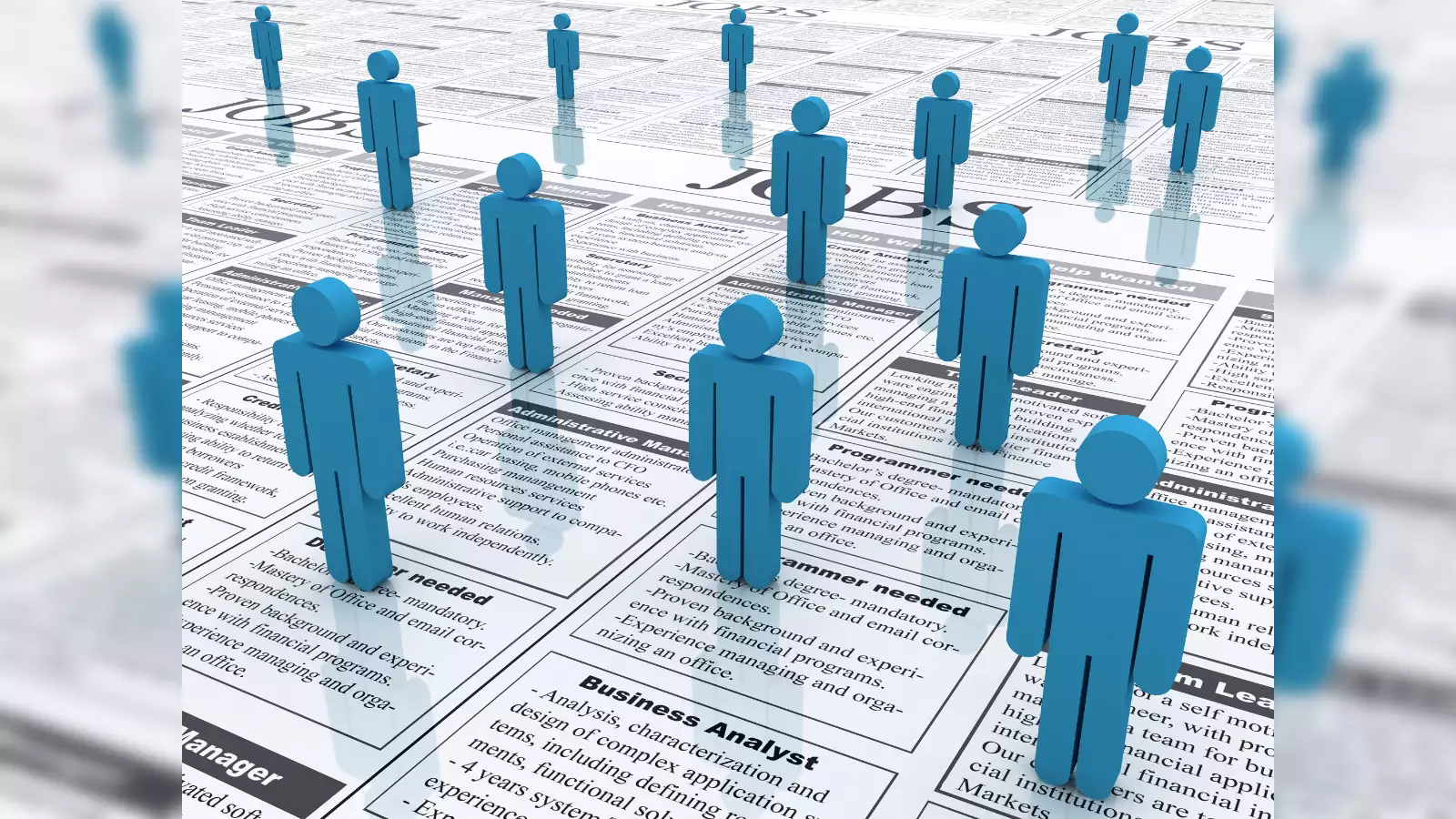The US Jobs Market, a key pillar of the American economy, is exhibiting signs of cooling, casting a shadow of uncertainty over the much-anticipated annual gathering of Federal Reserve officials at Jackson Hole. This shift in the labor landscape presents a complex challenge for the Fed as it grapples with stubbornly high inflation.
The US Jobs Market Cools Down: What Does the Data Say?
Recent economic data paints a picture of a cooling US Jobs Market. While not yet indicating a recession, these trends have raised concerns about the overall health of the economy.
Declining Job Openings
One of the most significant indicators is the decline in job openings. After reaching record highs, the number of available positions has begun to decrease. This suggests that employers are becoming more cautious in their hiring practices, potentially due to concerns about the economic outlook.
Slowing Wage Growth
Another sign of cooling is the slowdown in wage growth. While wages have been rising steadily in recent years, the pace of increase has moderated. This easing of wage pressures could provide some relief on the inflation front but also points to a softening labor market.
Impact of Interest Rate Hikes
The Federal Reserve’s aggressive interest rate hikes are widely seen as a contributing factor to the cooling Jobs Market. By raising borrowing costs, the Fed aims to curb inflation but also slows down economic activity, which can impact hiring decisions.
Jackson Hole Gathering: A Pivotal Moment for the Federal Reserve
The annual Jackson Hole Economic Symposium takes on added significance this year as the Fed navigates these challenging economic waters.
Jerome Powell’s Speech: Expectations and Predictions
Market participants and economists will be closely watching Fed Chair Jerome Powell’s speech at Jackson Hole for clues about the central bank’s future policy direction. Powell is expected to address the recent Jobs Market data and its implications for interest rates.
Balancing Inflation and Recession Fears
The Fed faces a delicate balancing act. It must continue to combat inflation, which remains elevated, but also wants to avoid tipping the economy into a recession. The cooling Jobs Market adds another layer of complexity to this challenge.
The Fed’s Dilemma: Deciphering the Job Market Signals
The Fed must determine whether the cooling US Jobs Market represents a healthy rebalancing after a period of exceptional growth or a warning sign of a more pronounced economic slowdown. This assessment will be crucial in guiding future interest rate decisions.
Global Implications of the US Job Market Slowdown
The health of the US Jobs Market has ripple effects throughout the global economy.
Impact on Global Growth
As the world’s largest economy, a significant slowdown in the US Jobs Market could have negative consequences for global growth. Reduced consumer spending and business investment in the US could spill over into other economies.
Spillover Effects on Other Economies
Emerging markets, in particular, are often sensitive to changes in US economic conditions. A cooling US Jobs Market could lead to reduced demand for exports from these countries, potentially impacting their economic growth.
Navigating the Uncertain Future: Expert Opinions and Analysis
Economists and market analysts are closely monitoring the evolving situation and offering their perspectives on the outlook for the US Jobs Market and the implications for the Federal Reserve’s policy decisions.
Economist Perspectives on the Job Market
Opinions are divided on the severity of the cooling Jobs Market. Some economists believe it is a necessary adjustment after a period of rapid growth, while others are more concerned about the potential for a more significant downturn.
Market Analysts’ Reactions to Recent Data
Market reactions to recent economic data have been mixed. While some investors are encouraged by signs that inflation may be easing, others are concerned about the potential for a recession.
[Image of Jerome Powell speaking at a podium with a concerned expression] (https://example.com/powell-jackson-hole.jpg)
FAQs about the Cooling US Jobs Market and Jackson Hole
1. What is the Jackson Hole Economic Symposium?
The Jackson Hole Economic Symposium is an annual gathering of central bankers, economists, and policymakers from around the world.
2. Why is the US Jobs Market cooling down?
Several factors are contributing to the cooling Jobs Market, including the Federal Reserve’s interest rate hikes, slowing economic growth, and lingering concerns about inflation.
3. Is a recession in the United States inevitable?
While a recession is not guaranteed, the cooling US Jobs Market and other economic indicators suggest that the risk of a downturn has increased.
4. How will the Federal Reserve respond to the cooling Jobs Market?
The Fed’s response will depend on its assessment of the overall health of the economy and the outlook for inflation.
5. What are the global implications of a cooling US Jobs Market?
A significant slowdown in the US Jobs Market could have negative consequences for global growth, as it could lead to reduced demand for exports and investment from other countries.
6. Where can I find more information about the Jackson Hole gathering and the US economy?
Reputable sources for economic news and analysis include the Federal Reserve’s website, financial publications like The Wall Street Journal and Bloomberg, and economic research institutions.
Conclusion
The cooling US Jobs Market adds a layer of complexity to the already challenging economic environment. The Federal Reserve’s decisions at the upcoming Jackson Hole gathering will be closely watched for clues about the future path of interest rates and the central bank’s efforts to balance inflation control with supporting economic growth. The outcome of these decisions will have significant implications not only for the United States but also for the global economy.



